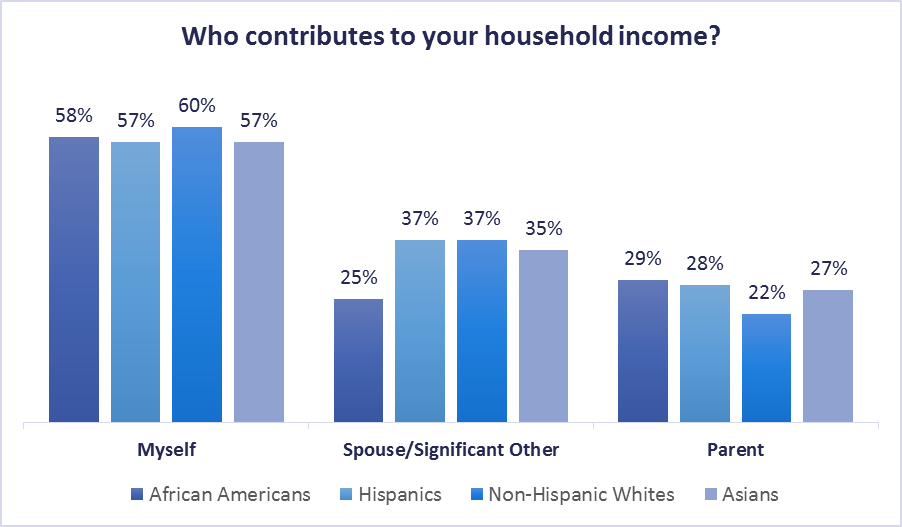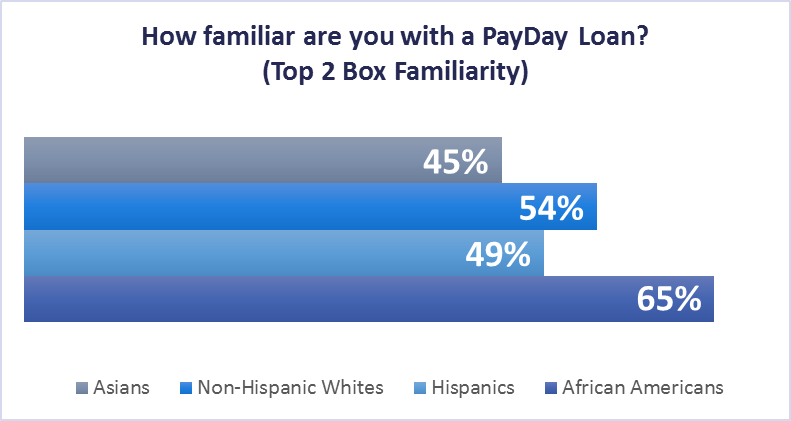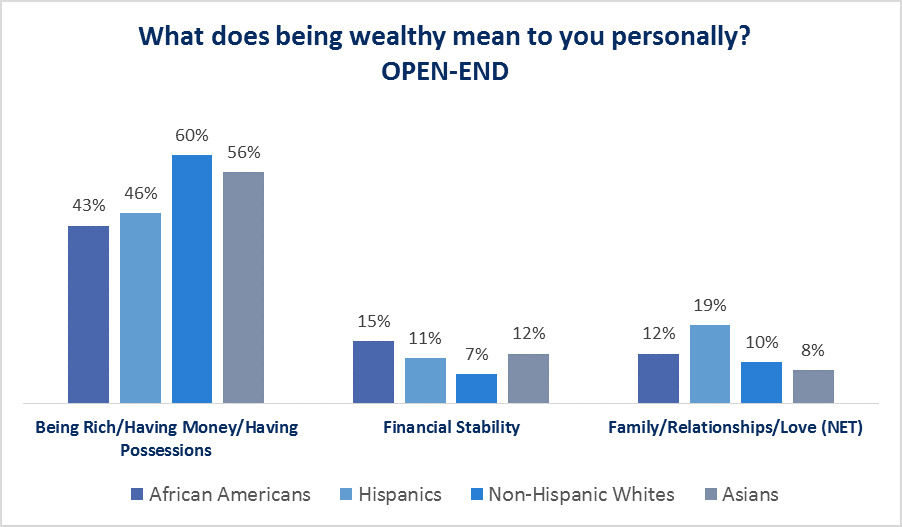African American Millennials – Wealth Means More Than Possessions
African Americans and Hispanics are often compared when it comes to talking about major minorities in America and they are also very valuable groups to target as your consumers in the U.S. market. The millennials of these groups are important to focus on as well, so how do the Hispanic and African American millennial consumers measure up?
One of the ways to compare them is to see what they think of wealth and finances. In some of our recent blog posts and detailed reports, we describe what we found out about Hispanic millennials and their opinions on banks, income, and other financial aspects of their lives. Now, let’s take a look at the financial sentiment we discovered via our Millennial Project survey, about African American millennials.
Beginning with their household income, African American millennials (AAM) reported having the lowest median income among the tested segments, Hispanics, Non-Hispanic Whites, and Asians. 50% of AAMs indicated their annual household income is less than $36,000, versus 40% of Hispanics, 38% of Non-Hispanic Whites, and only 26% of Asians revealing their household income at this same amount. Despite lower incomes, AAM manage to save a higher percentage of their income than their non-African American peers. Additionally, when it came to contributing to the income of their household, AAM revealed that they were on par with the other groups…

Another financial aspect, where AAM’s opinions were similar, was how they feel about banks. AAMs see banks as being more trustworthy since the financial crisis, they desire a personal relationship with their bank, and they value customer service, convenience, and low fees like most Millennials. 56% of male AAM revealed that their “impression of banks has improved”, while only 43% of female AAMs perceive this, exhibiting that the males have a stronger positive opinion of banks. Despite their positive perception of banks, AAM reported to be the least likely to use a bank when they need a loan and instead were more likely to utilize Payday loan/Cash advance services. Since Payday/Cash advance is a very popular source among this group, AAM indicated that they were also more likely to be familiar with PayDay loans…

Interestingly, the financial product that they are least likely to own is a Credit Card, since 38% of AAMs reported currently having a Credit Card as one of their financial products, contrasting significantly with 58% of Hispanics, 56% of Non-Hispanic Whites, and 68% of Asians. Why this drastic difference in Credit Card ownership? Perhaps it could have something to do with AAMs leaning more towards innovative ways of handling their finances. As, 9% more of AAMs agreed to being “open to ‘crowdfunding’”, than Non-Hispanic Whites.
One of the more revelatory findings in the study was what AAMs considered “wealth” to mean. Similarly to other millennials, 63% of them consider being wealthy as one of their goals in life, however, fewer of them define wealth as having possessions, 43% vs. 60% for non-Hispanic Whites. They were more concerned with Financial Security and considered Family, Relationships and Love to be a part of wealth at higher rates than non-Hispanic Whites and Asians.

As discovered in our study, the financial sentiments of the millennial groups vary in distinctive ways although they also share many agreements. Either way, Millennials have strong collective purchasing power and how they feel about their finances is the key factor to how they will behave as consumers. Their openness to innovation displays that traditional marketing will not always be the most efficient way to appeal to this group, so if you want them as your customer, make sure to be aware of exactly what they think. To dig deeper into the financial insights we found about African American and other Millennials, please download our complete and free report below.
We are pleased to offer free of charge the full contents of the report referenced in this blog entry. Please click the link below to get your copy now.